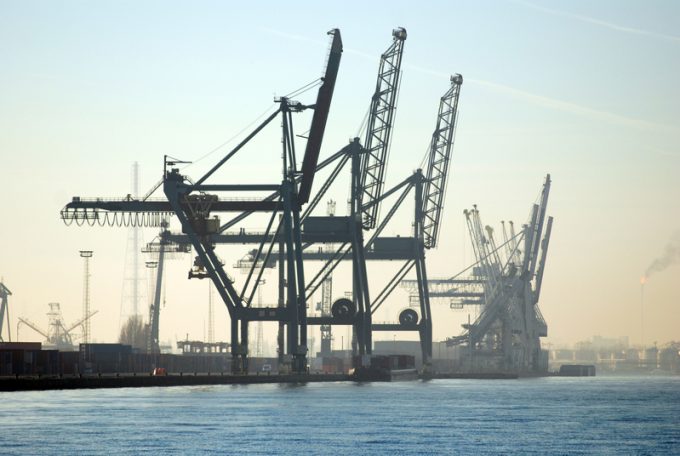Capture of MSC Aries will further drive up Indian export costs
With heightened geopolitical tensions sparked by the Iran-Israel faceoff, Indian exporters are again staring at ...

Barge delays at major North European terminals are predicted to persist until structural problems surrounding the region’s summer labour pools are solved.
Reported delays of up to 120 hours at Antwerp and Rotterdam led several European barge operators and deepsea carriers to impose congestion surcharges on shipments to the ports.
A week ago it seemed the problem may have been easing, as barge operator Contargo reported a drop in waiting times to 48 hours, but amended this to 12-72 hours on Monday morning.
Shipping consultant SeasC4U owner Gunther Ginckels told The Loadstar that, during the June-September holiday season, the number of available staff dramatically reduces as workers take summer breaks.
“Without the staff, loading and discharge times increase significantly – staff shortages are not a one-off, but a recurring seasonal issue” he said. “The holiday period is a real structural problem for the ports, compounded by the arrival of ever-larger ships. Ships of 20,000 teu stay in berth for upwards of 24 hours.”
Under the leadership of new chief executive Jacques Vandermeiren, Antwerp Port Authority has set up a committee comprising industry representatives to develop a solution to the crisis.
According to Mr Ginckels, the idea is that the committee will put together a charter with the hope of approving a solution by “September or October”.
“Fortunately, Mr Vandermeiren has taken steps, but solving this crisis will not be easy. Nonetheless, the committee initiative is a good move from the port authority,” he added. “I think Mr Vandermeiren was a little confused by the fractious nature of the industry when he took on the role, seeing it as a hindrance to future development.”
While praising Mr Vandermeiren, Mr Ginckels called for more immediate remedies for the congestion.
“We have seen some efforts: DP World has opened its gates at night for trucks to ease peak congestion, although this just underlines the fact there is a peak problem,” said Mr Ginckels. “But the effort is somewhat half-hearted as, although truck drivers can drop off full containers, they have no access to the empties, which means they are only doing half their job.”
He said the inefficiency of this approach was not helped by the fact drivers working at night cost more than those working the day shift.
“To pay more for half the work does not make sense and, as such, the truck operators are asking DP World to open its gates and provide access to the empty containers too,” added Mr Ginckels. “Of course, this in turn increases staffing costs for DP World.”
He said there had been moderate improvements in Rotterdam at APMT and at Antwerp’s MPET terminal, “probably partly on account of the fact that these terminals are linked to main carriers Maersk and MSC”.
As an example of the extent of the problem in Antwerp, Mr Ginckels said one barge operator had arrived from the Rhine-Ruhr region yesterday with a planned discharge time of 9am. On arrival, the operator was informed the barge discharge time was to be put back to 2.45pm. There were three further delays, the last was for 2am today.
On top of the time delays, Mr Ginckels also noted the fragmented discharge pattern: Berth 1700 – 95 teu (Antwerp Gateway) – Leftbank Deurganckdock; Berth 1718 – 7 teu (Antwerp Gateway) – Leftbank Deurganckdock; Berth 913 – 24 teu (PSA) – Rightbank Riverterminal; Berth 869 – 35 teu (PSA) – Rightbank Riverterminal; Berth 1742 – 108 teu (MPET) – Leftbank Deurganckdock.
Comment on this article